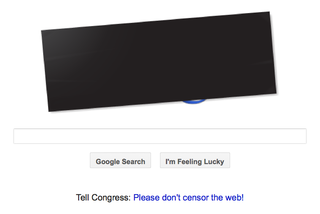
Marky Mark and the Funky Bunch was an American hip-hop group formed in 1991 by Mark Wahlberg, Scott Gee, Hector the Booty Inspector, DJ-T, and Ashey Ace. The group's best known song is "Good Vibrations", which made it to number one on the Billboard Hot 100 in 1991, while their follow-up song "Wildside" peaked at number 10.

The Entertainment Software Association (ESA) is the trade association of the video game industry in the United States. It was formed in April 1994 as the Interactive Digital Software Association (IDSA) and renamed on July 21, 2003. It is based in Washington, D.C. Most of the top publishers in the gaming world are members of the ESA.

The Game Manufacturers Association (GAMA) is a non-profit trade association based in Columbus, Ohio, dedicated to the advancement of the non-electronic social game industry – tabletop games, miniatures games, card games, collectable/tradeable card games, role-playing games, and live-action role playing games. Its members are game manufacturers, retailers, distributors, suppliers, conventions, clubs, and independent professionals related to the games industry.
The National Institute on Media and the Family (NIMF), founded by psychologist David Walsh in 1996 and closed in 2009 was a nonprofit organization based in Minneapolis, Minnesota. It was a nonsectarian advocacy group which sought to monitor mass media for content that it deemed is harmful to children and families. The group characterized itself as "an international resource center for cutting-edge research and information" and denied playing any role in media censorship.
Douglas Lowenstein is the founder and former president of the Entertainment Software Association (ESA). He resigned on February 12, 2007 to head up the newly formed Private Equity Council.

GamePolitics.com was a blog which covered the politics of computer and video games. GamePolitics was launched by freelance journalist Dennis McCauley in March 2005. At the time, McCauley was the video game columnist for The Philadelphia Inquirer, a position he held from 1998 to 2009. Growing somewhat bored of writing video game reviews, McCauley created GamePolitics in order to track the political, legal and cultural impact of video games. The site was often referred to as GP by followers.
The Interactive Entertainment Merchants Association (IEMA) was a United States-based non-profit organization dedicated to serving the business interests of leading retailers that sell Interactive entertainment software. Member companies of the IEMA collectively accounted for approximately seventy-five percent of the $10 billion annual interactive entertainment business in the United States. The association was established in 1997 by Hal Halpin, its president and founder, and counts among its member companies the largest retailers of games including Walmart, Target Corporation, Blockbuster Entertainment and Circuit City. The IEMA also sponsored an important annual trade show in the promotion of the business of the video game industry called the "Executive Summit".
Hal Halpin is an American computer game executive and entrepreneur, and is the president and founder of the Entertainment Consumers Association (ECA).
Games for Good (GfG) is a non-profit charitable organization which raises funds and products from within the entertainment industry and donates them to child-centric partners. Started in 1998 by a group of volunteers, GfG was led by industry veteran Lynne Killey. It raises money and requests that game publishers donate video and computer games to them for re-distribution to children's charities. It hosts dinners, silent auctions and parties.

Spencer Halpin's Moral Kombat is a 2009 documentary film, directed by Spencer Halpin, an American independent filmmaker. The title of the film is in part a reference to the Mortal Kombat series of video games. The title was changed from Moral Kombat to Spencer Halpin's Moral Kombat to avoid the risk of a lawsuit.
Within the video game industry there are several awards that are given to individual video games, development studios, and other individuals to recognize their merit. Most video game awards are given out on an annual basis, celebrating the best games of the previous year. Most of these awards come from organizations directly within the industry, but there also exist several that come from broader media groups. In addition, many video game publications supply their own end of the year awards.
The Primary Care Collaborative (PCC) is a coalition of approximately 1,000 organizations and individuals, employers, consumer, and patient/family advocacy groups, patient quality organizations, health plans, labor unions, hospitals, physicians, and other health professionals. They work on establishing the patient-centered medical home (PCMH) model, an approach to providing comprehensive care for children, youth, and adults. They are headquartered in downtown Washington, D.C.

Common Sense Media (CSM) is an American nonprofit organization that reviews and provides ratings for media and technology with the goal of providing information on their suitability for children. It also funds research on the role of media in the lives of children and advocates publicly for child-friendly policies and laws regarding media.

Gerard Damien Long, better known as Jerry, is an American rapper and record producer. He is best known for being a founding member of the hip hop collective Odd Future.

The Stop Online Piracy Act (SOPA) was a proposed United States congressional bill to expand the ability of U.S. law enforcement to combat online copyright infringement and online trafficking in counterfeit goods. Introduced on October 26, 2011, by Representative Lamar Smith (R-TX), provisions included the requesting of court orders to bar advertising networks and payment facilities from conducting business with infringing websites, and search engines from linking to the websites, and court orders requiring Internet service providers to block access to the websites. The proposed law would have expanded existing criminal laws to include unauthorized streaming of copyrighted content, imposing a maximum penalty of five years in prison.

On January 18, 2012, a series of coordinated protests occurred against two proposed laws in the United States Congress—the Stop Online Piracy Act (SOPA) and the PROTECT IP Act (PIPA). These followed smaller protests in late 2011. Protests were based on concerns that the bills, intended to provide more robust responses to copyright infringement arising outside the United States, contained measures that could possibly infringe online freedom of speech, websites, and Internet communities. Protesters also argued that there were insufficient safeguards in place to protect sites based upon user-generated content.

Maximum Games, Inc. is an American video game publisher based in Walnut Creek, California. Originally founded in 2009 as a publisher of family-oriented titles for the Nintendo DS and Nintendo Wii, the company shifted to publishing games of all genres for all ages across all platforms shortly after inception.
Engine is a non-profit group advocating for public policies that encourage the growth of technology startups in San Francisco, California. Engine is composed of a 501(c)(3) organization called Engine Research Foundation and a 501(c)(4) called Engine Advocacy. Engine Advocacy and Engine Foundation are the two branches of a non-profit organization that conducts economic research and policy analysis research and provides support and advice to technology startups. Engine Advocacy was an instrumental partner in the effort to defeat PIPA and SOPA back in 2012. The organization researches and advocates around the issues of open Internet, intellectual property reform, privacy laws, Internet and spectrum access and immigration reform. Google, SV Angel, 500 Startups, Mozilla, Yelp and the Startup Genome support the organization.
ManyVids is a Canadian adult entertainment video hosting, live streaming, and e-commerce company headquartered in Montreal, Quebec, Canada.










